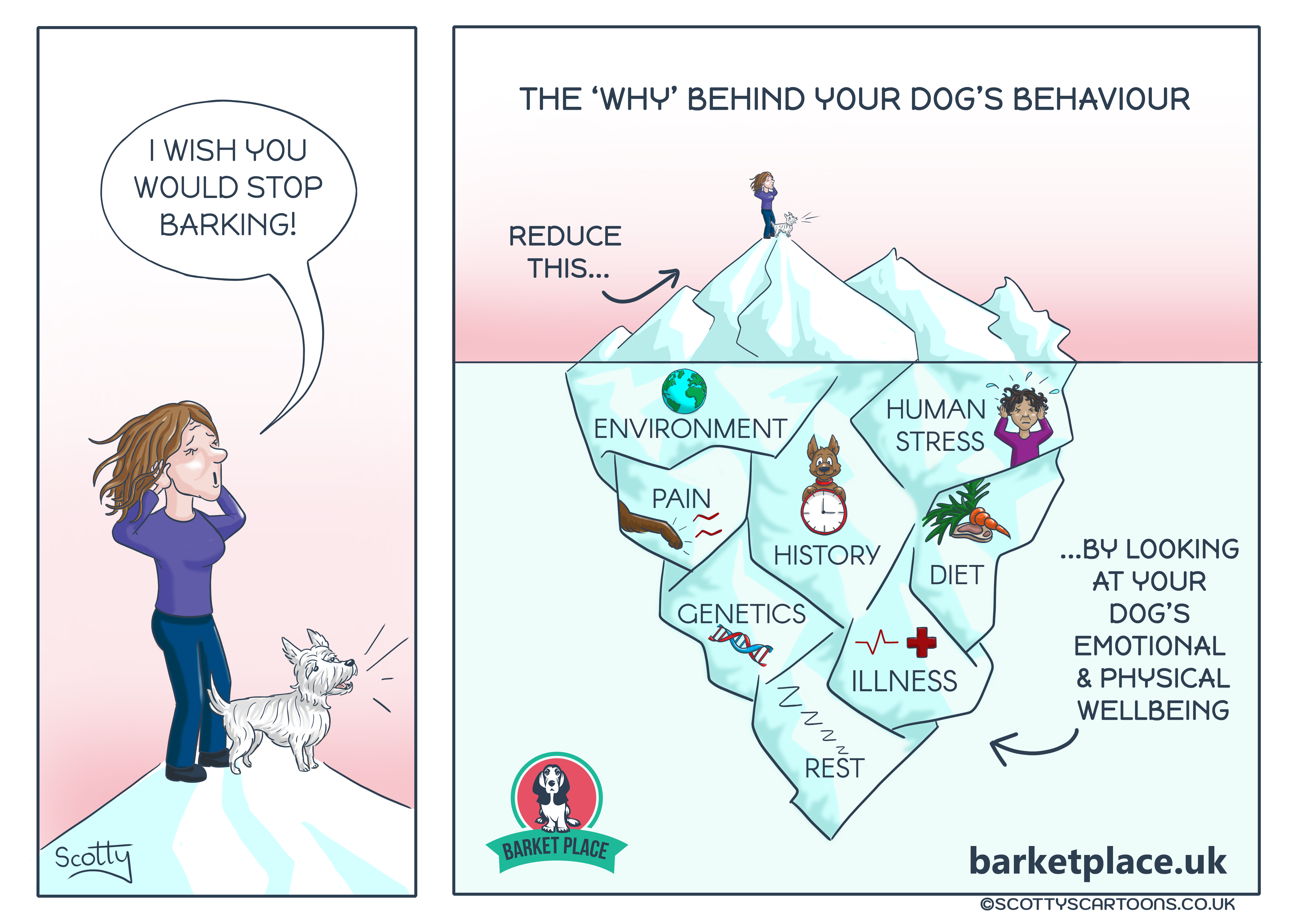
Why Your Dog’s Barking Isn’t Just Barking: Understanding the Whole Iceberg of Behaviour
May 01, 2025When our dogs start displaying challenging behaviours - like barking at every passerby, lunging at other dogs on walks, or struggling to be left alone - it's easy to fixate on the problem we can see. And that makes total sense. These behaviours are loud, disruptive, and stressful, especially when we just want to help our dogs live calm, happy lives.
But here's something many pet parents don't realise: what you're seeing is just the tip of the iceberg.
In the behavioural work I do, I often describe it exactly that way - like looking at an iceberg. Above the water is the behaviour: the barking, the anxiety, the pulling, the reactivity. But what's below the surface is much, much bigger - and often holds the key to real change.
Download our free Barking guide: https://www.barketplace.uk/unlock
What's Beneath the Surface?
When a dog is exhibiting difficult behaviours, it's rarely about that behaviour in isolation. Underneath, there could be a combination of factors silently shaping your dog's responses. Things like:
-
Sleep and Rest: Is your dog getting enough quality sleep? Lack of proper rest can hugely impact behaviour, just like it does in humans.
-
Balanced Activities: Does your dog have a good mix of physical exercise, mental stimulation, and downtime?
-
Diet and Nutrition: What your dog eats affects their energy levels, mood, and even how anxious they might be.
-
Breed Traits: Every breed (and mix) comes with its own needs and desires - working against these instincts can cause frustration or anxiety.
-
Pain and Illness: How your dog is feeling phsyically is going to play into how they're feeling emotionally. If you see a new challenging behaviour appear, it's always important to get them checked over by your vet.
-
The Human Factor: Yes, your emotional state matters too. Our dogs are deeply attuned to us... the stress, frustration, or anxiety we're feeling can be fed down the lead to them.
Looking at the Whole Dog
True behaviour change doesn't start with training - it starts with compassion and curiosity. Instead of jumping straight into teaching new exercises or simply putting management tools into place, we need to pause and assess the full picture of our dog's life. Once we meet their underlying needs, we may even find that the "problem behaviour" reduces significantly or even may disappear altogether.
Only then is it time to build on that solid foundation with training and behavioural support. That's when our dogs are most ready to learn and grow.
Final Thoughts
So if you're feeling overwhelmed by your dog's behaviour, remember: there may be more to it than you think. Be willing to look under the surface. Behaviour is communication, and every bark, whine, or lunge is your dog trying to tell you something. When we listen, and look at the whole iceberg - not just the tip - we start to understand how to truly help them.
Download our free Barking guide: https://www.barketplace.uk/unlock


